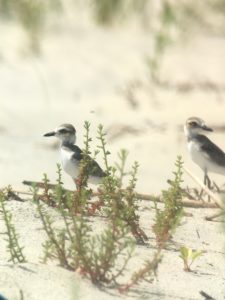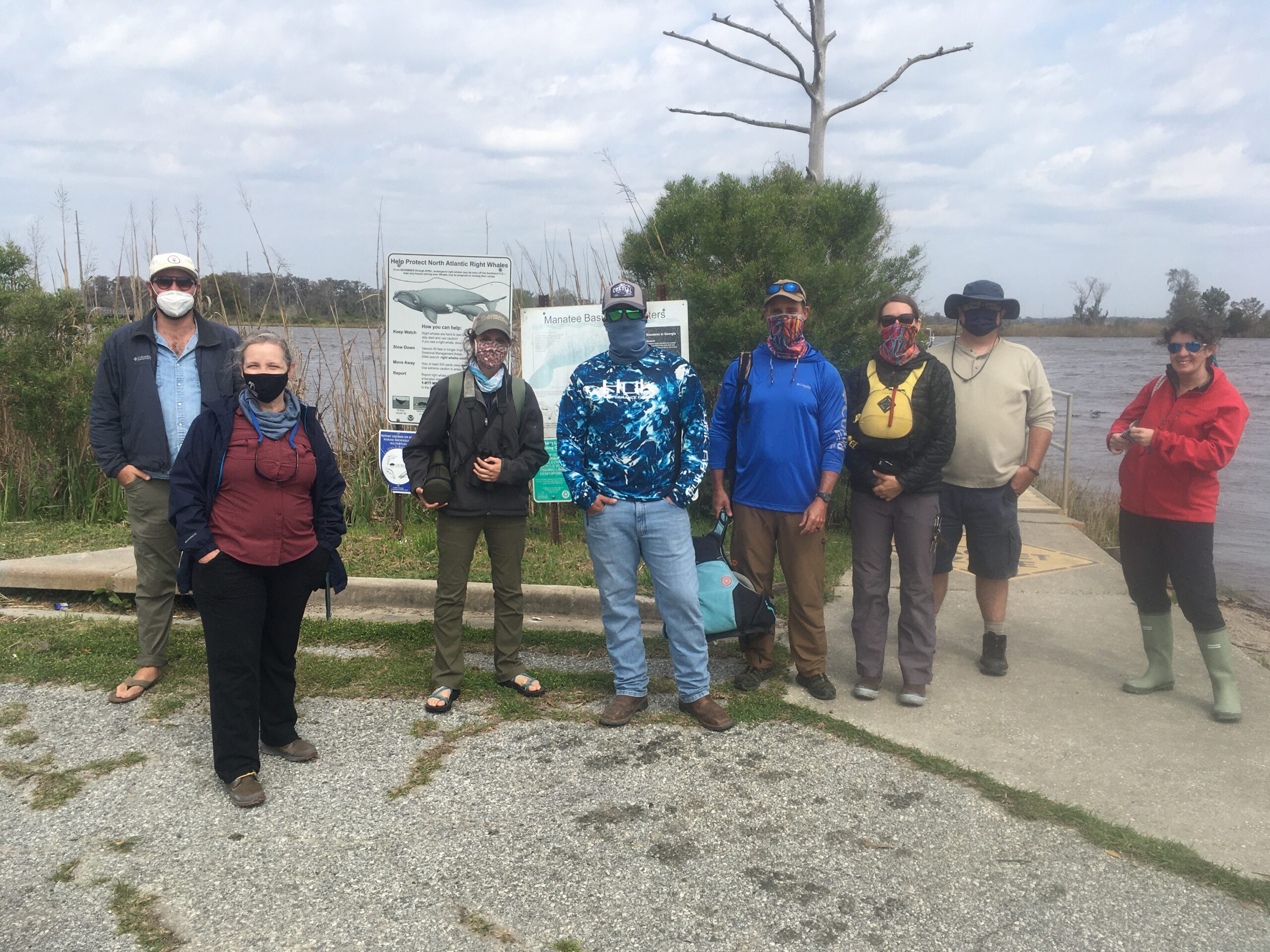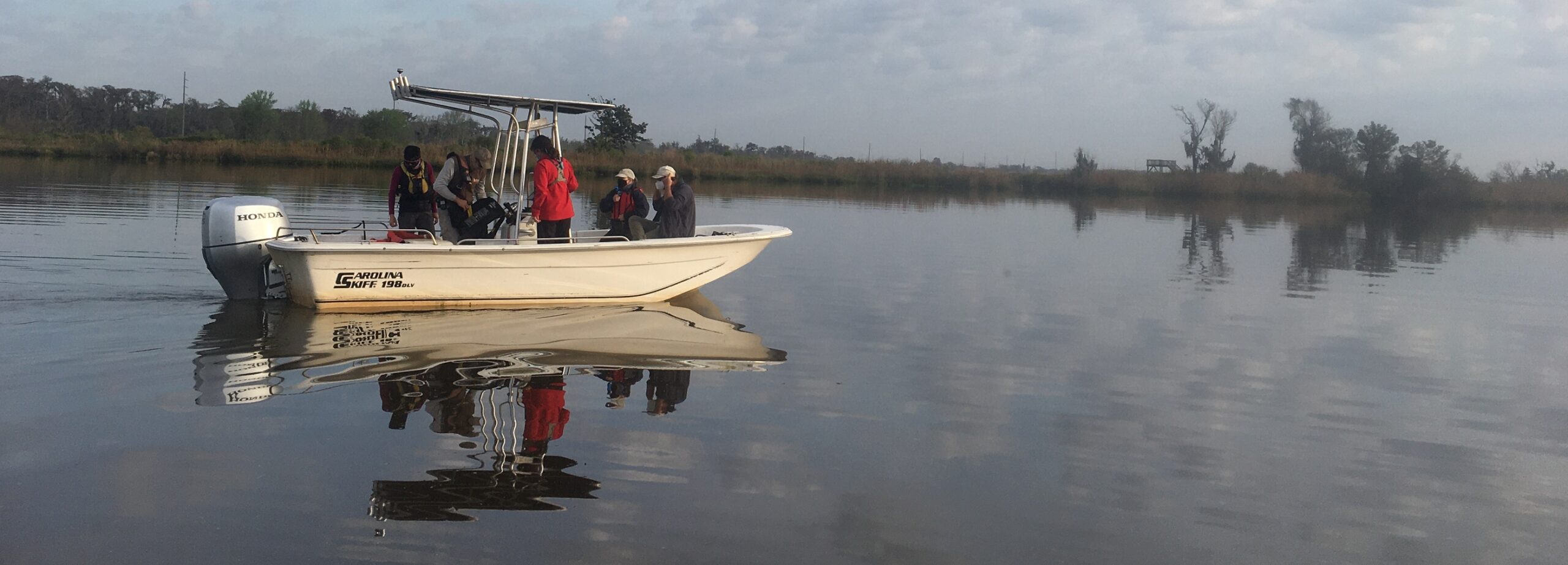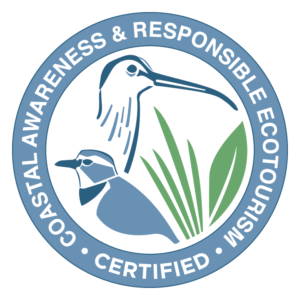Spring in coastal Georgia is beautiful, with longer days and warm temperatures that hint at the coming heat of summer. The idyllic and peaceful conditions can deceptive because, for shorebirds, this season is the height of activity.

Along the coast of the Georgia Bight, from northeast Florida to South Carolina, flocks of migratory shorebirds are busy chasing the tide, feeding on spawning horseshoe crab eggs and surf clams, and building energy stores to travel to the Arctic. Birds are molting from winter plumage into their colorful breeding plumage – Red Knots are red instead of gray, and Black-bellied Plovers really have black bellies. Amidst the scurry of feeding frenzies, local nesting birds like American Oystercatchers and Wilson’s Plovers defend territories and protect their nests, incubating eggs out on open beaches and the shell rakes that edge the salt marshes.
These sights inspire awe among locals and visitors alike, but many of these spectacular places are relatively remote and only accessible by boat. The dynamic nature of our coastline can make navigation difficult, so one of the primary ways for visitors to access them is through ecotourism guides or outfits. Tourism is an important component of the local economy, and ecotourism thrives in Georgia with so much natural beauty. However, it is unfortunately possible to love a place to death.
Disturbance at remote places, where shorebirds are refueling during migration or nesting and raising chicks, can negatively affect birds. If people use places like the inlets where shorebirds tend to congregate, they become “functionally unavailable.” This means that even if they hold abundant food resources or appear to be high-quality habitat, shorebirds will not be able to use them. When people visit these remote places, they scare these birds from their roosts causing them to burn the valuable energy they need to carry them all the way to Arctic nesting grounds. When dogs are brought to these sites with their owners, nesting birds can be frightened from their nests, causing eggs or chicks to be exposed to predators or overheating.






 Back to all
Back to all
 The Coastal Awareness and Responsible Ecotourism (CARE) certification focuses on providing educational material on a range of coastal topics relevant to guides, with a significant emphasis on shorebirds and reducing disturbance. With funding from the Coastal Resources Division of Georgia Department of Natural Resources (GA DNR) through the Coastal Incentive Grant program, we created a virtual learning platform. We launched the program in February, with our first cohort of 17 guides joining from across the Georgia coast. The interactive course was spaced out over four weeks, with a live weekly virtual lecture with guest experts to supplement the virtual content, including Manomet’s own Brad Winn to talk about shorebirds. The course culminated in small groups gathering for a field component to talk about shorebirds and learn the basics of shorebird identification. Certified participants will be able to advertise with the CARE logo on websites and social media, and receive stickers, a buff and a laminated field guide created in partnership with Manomet and GA DNR.
The Coastal Awareness and Responsible Ecotourism (CARE) certification focuses on providing educational material on a range of coastal topics relevant to guides, with a significant emphasis on shorebirds and reducing disturbance. With funding from the Coastal Resources Division of Georgia Department of Natural Resources (GA DNR) through the Coastal Incentive Grant program, we created a virtual learning platform. We launched the program in February, with our first cohort of 17 guides joining from across the Georgia coast. The interactive course was spaced out over four weeks, with a live weekly virtual lecture with guest experts to supplement the virtual content, including Manomet’s own Brad Winn to talk about shorebirds. The course culminated in small groups gathering for a field component to talk about shorebirds and learn the basics of shorebird identification. Certified participants will be able to advertise with the CARE logo on websites and social media, and receive stickers, a buff and a laminated field guide created in partnership with Manomet and GA DNR.